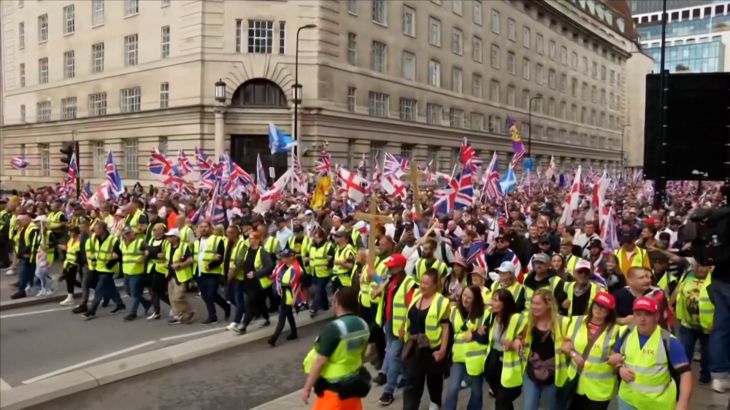
This past weekend, the streets of London became more than just pathways of protest — they became a mirror to the soul of a nation.
Supporters of Tommy Robinson claimed millions had turned out, voices online swelling the number to “3 million.” Official estimates said something closer to 100,000 to 150,000. Yet in this clash between perception and fact, a deeper truth emerged: Britain is at a crossroads, and the very idea of truth itself is contested.
Why People Showed Up
Crowds came not just for Tommy Robinson the man, but for what he represents to them — an uncompromising voice speaking about immigration, freedom of speech, and national identity. To many who marched, it wasn’t simply about politics, but about holding fast to something they believe is slipping away.

The Symbolism of “3 Million”
The gap between what was seen and what was claimed may trouble fact-checkers, but it speaks volumes about emotion. For Robinson’s followers, the number itself is a statement: “We are not few. We are many. We will not be ignored.” In a time where trust in institutions runs thin, people often cling to symbols more than statistics.
A Lesson for Our Times
It’s tempting to focus only on the headcount, but the heart of the matter is bigger. Whether it was 150,000 or 3 million, the march forced Britain to face uncomfortable questions:
- What does freedom mean when voices are silenced or branded unacceptable?
- Can truth be both factual and symbolic?
- And most importantly, what kind of nation does Britain want to become?
Standing Firm Amid Confusion
In moments like these, the lesson isn’t about siding with one man or another. It’s about realizing that conviction has power. Numbers can be disputed, but courage, sacrifice, and belief in something greater than yourself cannot be counted so easily.
Britain is wrestling with itself — and perhaps, like so many times in history, the answer will not be found in the millions or the thousands, but in the willingness of ordinary men and women to stand for what they believe is right.





